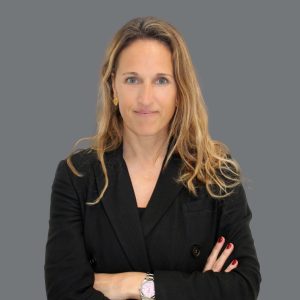The Sustainable Hospitality Challenge, an initiative by Hotelschool The Hague, allows students to showcase and create innovative concepts, present them to decision-makers from the investment community with winners having the opportunity to turn a project into reality. This week the six finalists – Hotelschool The Hague, Hotel Institute Montreux, Hotel Management School Maastricht Zuyd, École hôtelière de Lausanne, Ryerson University, CY Cergy Paris University – presented their concepts and ideas in front of a C-Suite jury and 700+ industry leaders during AHIC in Dubai.
Joined virtually by Sébastian Bazin, Chairman and CEO of Accor on stage for the winner announcement moment were Paul Griep, Director of Industry Relations at Hotelschool The Hague and the driving force behind the challenge, Wolfgang Neumann – Chairman of the Sustainable Hospitality Alliance who is also a Chairman of the Board, Hotelschool The Hague and Marloes Knippenberg – CEO of Kerten Hospitality and a chair of the jury.
One team got the coveted prize today. The winning team EHL students Eve Mignot, Lukas Lauber and Stefano Abedum de Lima Hanzawa, developed the outline of a business model called SEVCCO (SEVCCO (Shared Economic Value through Co-living Cooperative Opportunities), based on incorporating sustainability in communal living, centralised and operated by hospitality companies, for which they see immense potential in growing cities.
Bazin had this to say to the winners: “You are the leaders of tomorrow and you are going to change the world of hospitality. I am truly proud of all teams representing their phenomenal concepts. I would like to stress that EHL with the wining concept called SEVCCO is invited to meet me in Paris where we will investigate the execution by Accor.”
Griep commented, “This initiative presents a unique opportunity for the next generation of hospitality leaders to build sustainable solutions with a global outreach and outcome. Today, we have seen such creativity, opportunities and endless innovation coming from the young leaders of tomorrow.”
Knippenberg said, “It was very impressive how these young students (all 6 teams) performed on stage and in front of very senior hospitality audience. I think listening to the people post the presentations shows that these ideas are implementable and could be very transformational to the whole industry.”
Here is how the winners described their concept: “We want to help redefine the hospitality industry by reducing the negative impact of our society’s unsustainable consumption habits and by alleviating global loneliness by leveraging the efficiencies and the social aspect of community living. Our concept involves creating co-living environments called SEVCCO with an infrastructure that promotes social interaction and sustainability through the sharing of resources. We want the hospitality industry to become a pioneer and torchbearer with regards to sustainability; paving the way towards a carbon neutral society benefitting all stakeholders along the value chain.”




